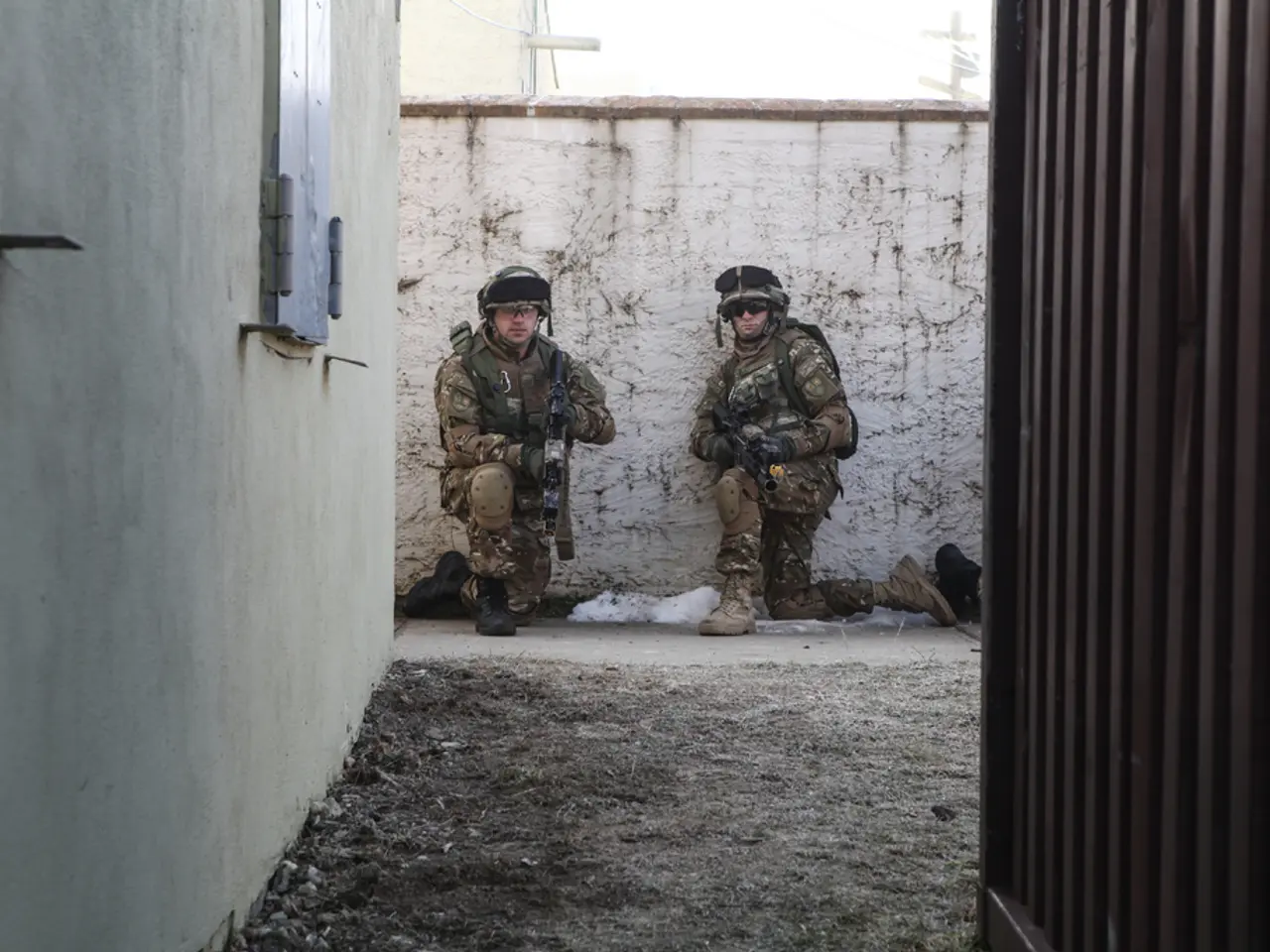Germany's shift towards Israel is stirring concerns among Jewish local inhabitants
In Berlin, a concerning surge in anti-Jewish incidents has been reported, coinciding with heightened tensions from the Israel-Palestine conflict and domestic political reactions. This trend, evident since late 2023, has seen a significant increase in antisemitic incidents, with an average of 32 incidents per day nationwide as of late 2024, up from just seven per day in 2022.
The context includes local political and social reactions, such as the German government's stance, including Chancellor Friedrich Merz's halt to arms sales to Israel, which has contributed to increased polarization around the Israel-Palestine situation within Germany. Pro-Palestinian protests, often conflated with antisemitic expressions, have been prominent in Berlin, and police warnings to Jewish residents to exercise caution in certain Arab-majority neighbourhoods reflect rising community tensions.
Events such as the April 2024 Palestine Congress in Berlin, which was heavily policed and criticized, illustrate the fraught environment. Jewish groups co-organizing the event have faced backlash, and participants have been labeled antisemitic for criticizing Israeli policies.
Right-wing extremism and widespread societal antisemitism also contribute to this rise. A report by Germany's Federal Criminal Police Office shows that most antisemitic crimes are attributed to right-wing extremists, though antisemitism persists broadly across society.
Tensions in public and cultural spaces are also a concern. There are reports of silencing and funding cuts affecting Jewish cultural groups and artists perceived as critical of either side in the conflict, suggesting heightened sensitivity and polarization.
Incidents such as the one involving a British-Jewish man named Walter are a stark reminder of the surge in anti-Jewish violence. On a Berlin bus, a German man approached Walter and asked if he had heard that Germany would no longer sell weapons to Israel. The conversation escalated, with the German man becoming aggressive and shouting antisemitic slurs at Walter, calling him a "child-murderer."
This incident occurred in the aftermath of the Hamas-led October 7th 2023 attacks. The ruling centre-right Christian Democratic Union (CDU) in Germany previously disagreed energetically with Chancellor Friedrich Merz's stance on halting weapons sales to Israel. Israeli historian, Prof Moshe Zimmermann, stated on German public television that if one stands for Israel's security and continued existence, one cannot be for Israel's conquest of Gaza.
Rabbi Max Feldhake, of Celle, expressed concerns about such comparisons, to which an older German man responded that "what Israel is doing is worse than the Nazis." Feldhake has observed a post-October 7th renaissance of this argument. Previously, critics of the Staaträson term have now co-opted both, following Merz's decision to make Germany's support of Israel conditional.
Despite Merz's decision being largely symbolic and not involving any major weapons exports, Feldhake is worried about the unintended consequences of the Merz shift, which could see the October 7th protest slogan "Free Palestine from German guilt" merge with the thinking behind another postwar slogan: "The Germans will never forgive the Jews for Auschwitz."
In a separate incident, a theatre in the western city of Celle staged a play drawing parallels between residents of postwar displaced people's camps, including Holocaust survivors, and Palestinians in modern-day camps in Lebanon and Jordan. The pro-Israeli Bild tabloid, which previously did not print pictures from inside Gaza, juxtaposed an image of the ruins of Gaza with 1945 Dresden, a comparison many readers supported.
These incidents underscore the complex interplay of rising antisemitism connected with German society's reactions to the Israel-Gaza conflict and local political decisions, including but not limited to Merz's arms sales halt. The decision itself may have contributed to the political polarization but exists within a larger trend of increased antisemitic violence and rhetoric in Germany since late 2023.
References:
- Antisemitic incidents in Germany
- Palestine Congress in Berlin
- Right-wing extremism and antisemitism in Germany
- Silencing and funding cuts affecting Jewish cultural groups
- Anti-Israel rally in Berlin
In the context of heightened tensions from the Israel-Palestine conflict and domestic political reactions, discussions surrounding war-and-conflicts and politics have become increasingly fraught in Germany. The German government's stance, including Chancellor Friedrich Merz's halt to arms sales to Israel, has contributed to increased polarization around these issues within the country.
This polarization, as seen in pro-Palestinian protests and the Palestine Congress in Berlin, often leads to disputes and antisemitic expressions, causing concerns among Jewish communities. Reports of antisemitic incidents, such as the one involving Walter on a Berlin bus, have significantly increased since late 2023, underscoring the complex interplay of rising antisemitism connected with German society's reactions to these conflicts and local political decisions.






